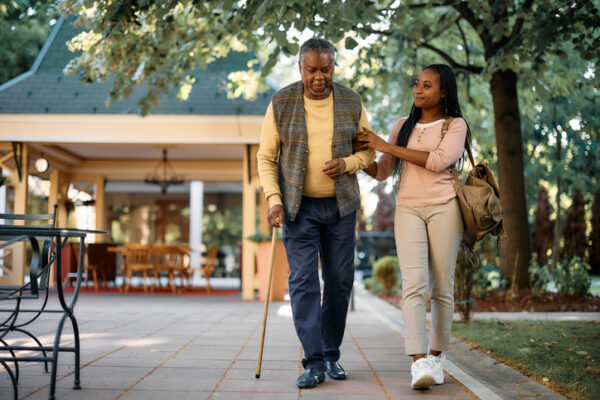A recent news story reported that as a result of medical advances, people born today in the most developed countries could live to be 120 years old.
That is a life expectancy nearly twice the average for someone born in 1950, when it was 68 years old. Such a future world will be very different from that of 1950 even if we do not live that long. How, we must ask, does one live a life that is substantially longer than it is today.
The media are full of stories that individuals do not have enough for a long and comfortable retirement. The average Social Security stipend will drop by nearly a quarter if nothing is done. But it also raises philosophical and practical questions. These concerns go beyond financial security to what gives meaning to such long lives. As a society, we must confront this challenge collectively.
Perhaps the most important implication of this new demographic and social reality stems from the ways in which it will affect relations among generations. Take, for example, cities like Austin and Houston that are young but rapidly aging. During the past decade, the population of Austin 65 and older has grown by over 70%, while that of Houston grew by 40%.
This growth will continue well into the future. Austin also has a favorable ratio of workers to children and older adults, contributing to a robust economy. Even so, Austin and other municipalities across Texas are finding it difficult to keep pace with the needs of older populations while continuing to meet the needs of younger age groups.
This should serve as a major motivation for planners at all levels of government to consider the intergenerational implications of policies related to housing, transportation, education, the physical environment, and more. Texas is a vibrant state, yet many people are isolated, lonely and depressed.
One possibility is to have local governments work with secular and faith-based nongovernmental organizations to create new options in intergenerational care arrangements. In 2016, the City of Austin adopted an Age-Friendly Austin Plan, which emphasizes community destinations that incorporate vulnerable and older residents into all aspects of city life. Other Texas cities should do something similar.
Shared community space for adult day activity and child care services in public places have numerous benefits for the young and the old, as well as for caregivers who need time off to work and do other activities. They reduce social isolation, improve cognitive function, foster learning, and enhance quality of life.
For instance, evidence from a study of East Austin from the LBJ School of Public Affairs at The University of Texas at Austin suggests that a multi-use, community-based intergenerational day center helps to achieve positive and long-lasting outcomes among participants, caregivers and the community. In fact, a 2019 LBJ School community poll showed 75% favored priority city funding for older adults’ health, wellness and social services all conveniently located in one place.
And there are examples across Texas.
In Bryan-College Station, a private-public partnership between the Texas A&M University System and Stonehenge Holdings offers an intergenerational learning center consisting of a multiphase educational, housing and research project, including an intergenerational day care facility with a preschool and assisted living center for older adults. One intergenerational nonprofit center in Waco offers adult day care plus a range of services, money management, life skills, medical and nonmedical transportation, and home repairs, especially for those who lack family support. Los Angeles, Albuquerque, Miami and Seattle have introduced similar initiatives.
New ways of thinking about aging from a multigenerational perspective should inform all city planning efforts. These are imperative if we are going to enjoy the benefits of longer lives and engagement in society. Such public-private support would unite generations to come and make Texas a model for age-friendly communities everywhere.
Jacqueline Angel is the Wilbur J. Cohen Professor of Health and Social Policy in the LBJ School of Public Affairs and a professor of sociology at The University of Texas at Austin.
A version of this op-ed appeared in the San Antonio Express News and Austin American-Statesman.




